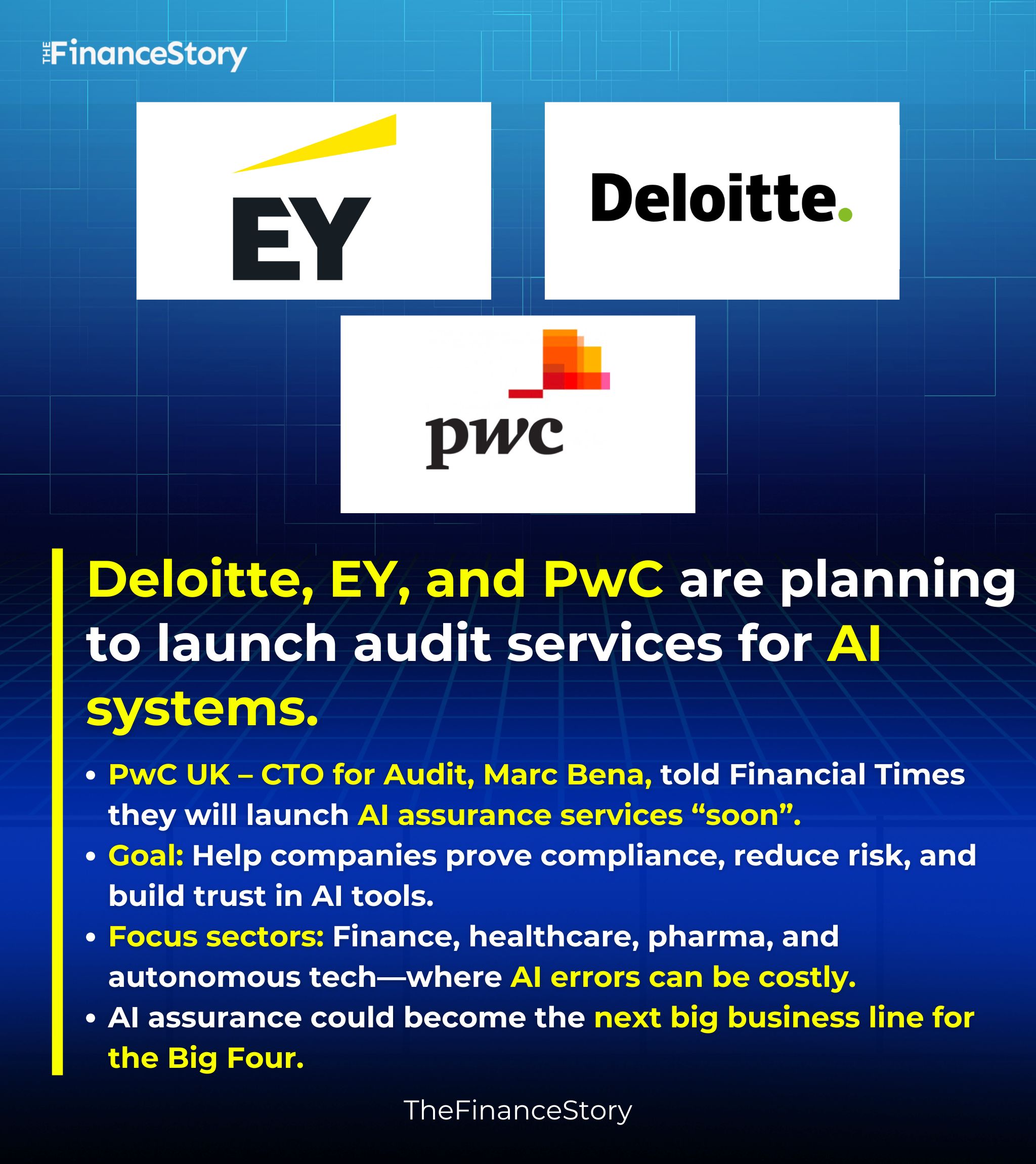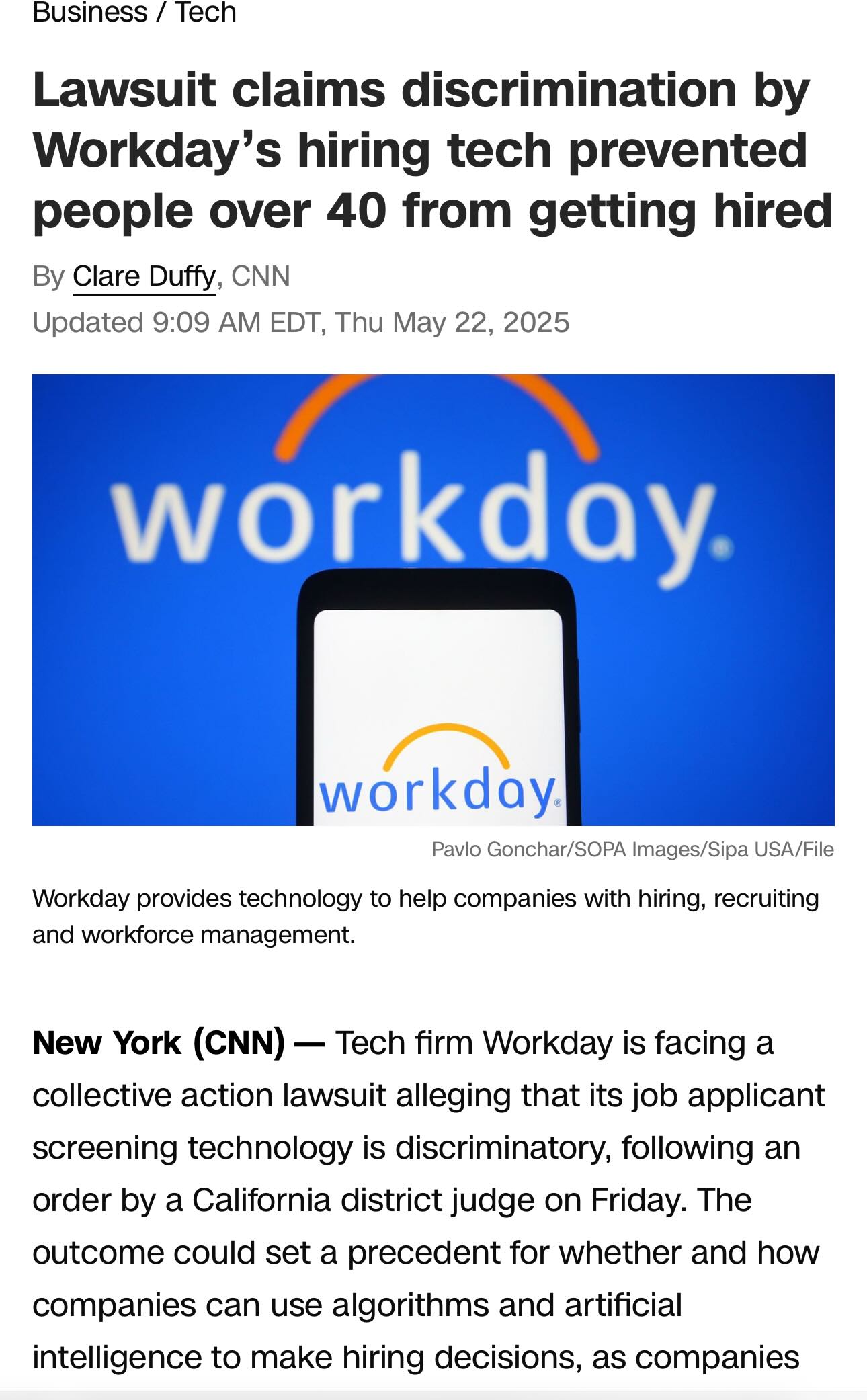- Deloitte, EY, and PwC are gearing up to introduce a new kind of audit – audit artificial intelligence.
- To put it simply: AI audits are all about giving clients (and regulators) the confidence that their AI is safe, fair, and playing by the rules.
- With companies rushing to adopt AI, the Big 4s have identified a fresh goldmine?

What’s an AI Audit?
An auditor’s job is to check that machines aren’t making biased or risky decisions.
It’s about ensuring:
- Algorithms are fair
- Datasets are clean
- Systems are compliant
- And AI isn’t quietly baking in bias or bugs that could cause real-world damage
In short, these new AI audit services will help businesses:
- Prove they’re playing by the rules
- Boost public trust in the AI systems driving critical decisions
Why now?
Because the AI boom is already here
From hospitals to hedge funds, AI is everywhere.
But so are the risks.
- What if an AI model denies a loan based on biased training data?
- What if your chatbot misinforms a cancer patient?
- What if your resume screening tool discriminates based on race or age?
For instance,
Workday, the global HR software firm, is already facing a class action lawsuit. Their AI-driven hiring system is accused of bias—allegedly filtering out candidates based on age, race, and disability.

AI regulations
Governments and watchdogs have woken up!
- The EU AI Act mandates third-party audits for high-risk AI.
- In the US, NYC’s Local Law 144 requires external audits of AI in hiring decisions.
- UK regulators have identified critical demand for AI audits in finance, life sciences, and pharma.
Even insurance companies are getting involved—offering policies to cover damages caused by AI gone rogue.

The biggest challenge for Auditors of AI?
AI evolves. Constantly.
Unlike a static financial report, AI systems learn—which means auditors aren’t just checking one version.
They’re chasing a moving target.
Also read: Big 4s India earned ₹20,000 Cr from tech consulting
What should you do?
Clearly – Upskill!
Start with the foundational knowledge:
- AI & Machine Learning Basics
- Responsible AI & AI Ethics
- Global AI regulations (EU AI Act, US laws, India’s draft AI framework)
Get Certified
- AI Audit Certificate – ISACA (launching soon)
- Responsible AI Certification – Microsoft / Coursera
- AI Governance & Risk – offered by Deloitte & others in webinars
Also read: Big 4 India gets bigger: Revenue surged to ₹38,800Cr & to surpass ₹45,000 crore
Wrapping up…
PwC is already reviewing corporate chatbots for accuracy and bias.
Deloitte calls AI assurance “critical” to future adoption.
EY’s Pragasen Morgan admits we’re not there yet—but we’re getting close.
The demand for AI audit services is expected to grow significantly:
- Global AI market is projected to exceed $800 billion by 2030.
- India’s AI industry is anticipated to reach $17 billion by 2027, with a 25–35% CAGR.
- India ranks No. 2 globally in AI talent, boasting 420,000 professionals.
With global regulations taking shape and India’s tech talent booming, could AI audits emerge as India’s NEXT big professional services export?
FAQs
What are the Big 4 firms in India?
In India, the Big Four refers to the four largest global professional services firms:
- Deloitte
- EY (Ernst & Young),
- PwC (PricewaterhouseCoopers),
- KPMG
These firms dominate the landscape when it comes to audit, tax, consulting, advisory, and risk services.
And they are often seen as the ultimate launchpad for high-potential careers in finance, accounting, and business.
Together, the Big 4 India employs over 100,000 people in India, and in FY24 alone, they generated ₹38,500 crore in revenue.
Over ₹20,000 crore of this came from technology and digital consulting, showing how these firms are evolving far beyond traditional audit.







